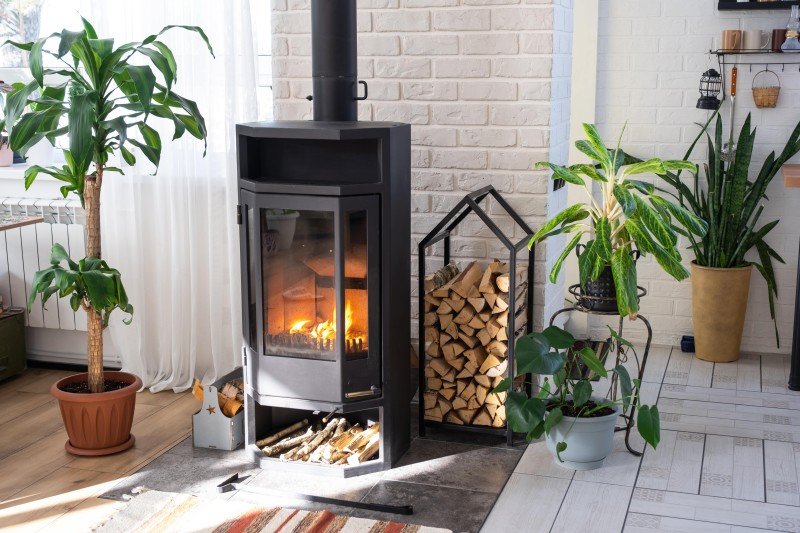A Comprehensive Guide to Buying Fireplaces in the UK
Fireplaces have actually long been a focal point in homes, offering both warmth and visual appeal. In the UK, the diverse climate makes fireplaces an integral function in numerous homes. Whether one is searching for a functional heating service or an elegant centerpiece, understanding the different kinds of fireplaces and the aspects to consider when buying is essential. This short article will provide a detailed summary of the types of fireplaces readily available, considerations before buying, and answers to often asked concerns.
Kinds of Fireplaces
When thinking about the purchase of a fireplace, one should understand the huge range of options offered. Here's a breakdown of the common types of fireplaces in the UK:
| Type of Fireplace | Description | Pros | Cons |
|---|---|---|---|
| Open Hearth | Traditional fireplace; wood-burning. | Traditional appeal, good heat circulation. | Ineffective, requires more maintenance. |
| Wood-Burning Stove | Enclosed wood-burning system created for effectiveness. | High-efficiency heating, wide range of designs. | Needs space for wood storage, might require chimney lining. |
| Gas Fireplace | Uses natural or propane gas for heating. | Easy to utilize, low upkeep. | May require expert setup, can be less warm than wood. |
| Electric Fireplace | Utilizes electrical energy to develop heat and flames. | Basic installation, doesn't need a chimney. | Typically less effective for heating, might lack the atmosphere of genuine flames. |
| Bioethanol Fireplace | Burns bioethanol for a clean-burning flame. | No venting needed, modern style. | Fuel can be costly, less heat output. |
| Pellet Stove | Uses compressed wood or biomass pellets. | Effective and eco-friendly. | Needs electricity to run, needs routine feeding and cleaning. |
Considerations Before Buying a Fireplace
Before dedicating to the purchase of a fireplace, several important elements must be taken into account:
- Purpose: Determine whether the fireplace will serve mostly for heating or as an aesthetic addition to the space.
- Kind of Fuel: Consider the type of fuel that best suits your needs-- wood, gas, electrical power, or alternative choices.
- Setup Costs: Assess the total installation expense, which may include chimney work, flue installation, or extra adjustments to the home.
- Area Availability: Check the area readily available and ensure that the selected fireplace fits comfortably within the designated location.
- Style and Design: Choose a design that complements the existing decoration of your home, whether modern, rustic, or traditional.
- Upkeep: Understand the maintenance requirements related to each kind of fireplace. For circumstances, wood-burning options might require routine cleansing of flues and chimneys.
- Energy Efficiency: Assess the energy performance of the fireplace, especially if it will function as the main heating source.
- Regional Regulations: Be aware of local policies and standards regarding installations, especially for wood-burning and gas appliances.
FAQs about Buying Fireplaces in the UK
1. What is the best type of fireplace for an eco-friendly home?
Response: A wood-burning range or a pellet stove can be great eco-friendly choices, as they utilize renewable resources. Bioethanol fireplaces are also tidy and produce no damaging emissions.
2. Do I require a chimney for a gas fireplace?
Response: Most gas fireplaces need venting to the outside, which can be through an existing chimney or by means of a direct vent system that vents through the wall.
3. How do I determine the ideal size of fireplace for my room?
Response: The size will depend on the room's square footage and the kind of fireplace. Typically, a professional can compute the BTUs (British Thermal Units) required based on the space size.
4. What is the average expense of installing a fireplace in the UK?
Answer: Installation costs can vary widely depending on the type of fireplace and its intricacy, ranging from ₤ 500 for electric fireplaces to ₤ 5,000 for some custom-made installations of wood stoves or gas units.
5. Are electric fireplaces safe to use?
Answer: Yes, electric fireplaces are typically really safe, as they do not produce real flames or emissions. Nevertheless, similar to any electrical appliance, they ought to be utilized according to maker guidelines.
The decision to buy a fireplace in the UK is multifaceted and depends upon various elements, consisting of design, performance, purpose, and setup requirements. By understanding Fireplaces Deals of fireplaces and assessing personal requirements and choices, one can make an educated option that improves their home and experience. With the information offered, potential buyers can embark on their journey to discover the perfect fireplace that integrates functionality with the comfort and heat that this essential feature supplies.
In summary, purchasing a fireplace is more than merely choosing a heating alternative; it is about adding character to a home while guaranteeing convenience for several years to come.

